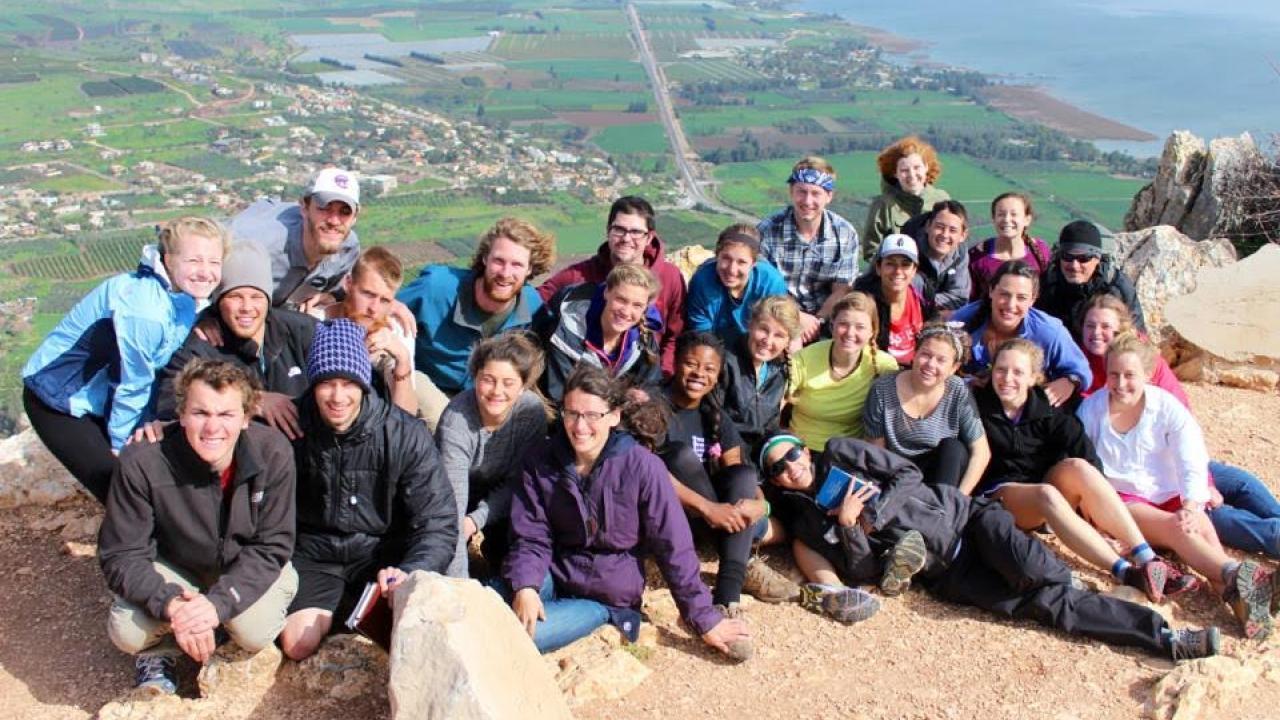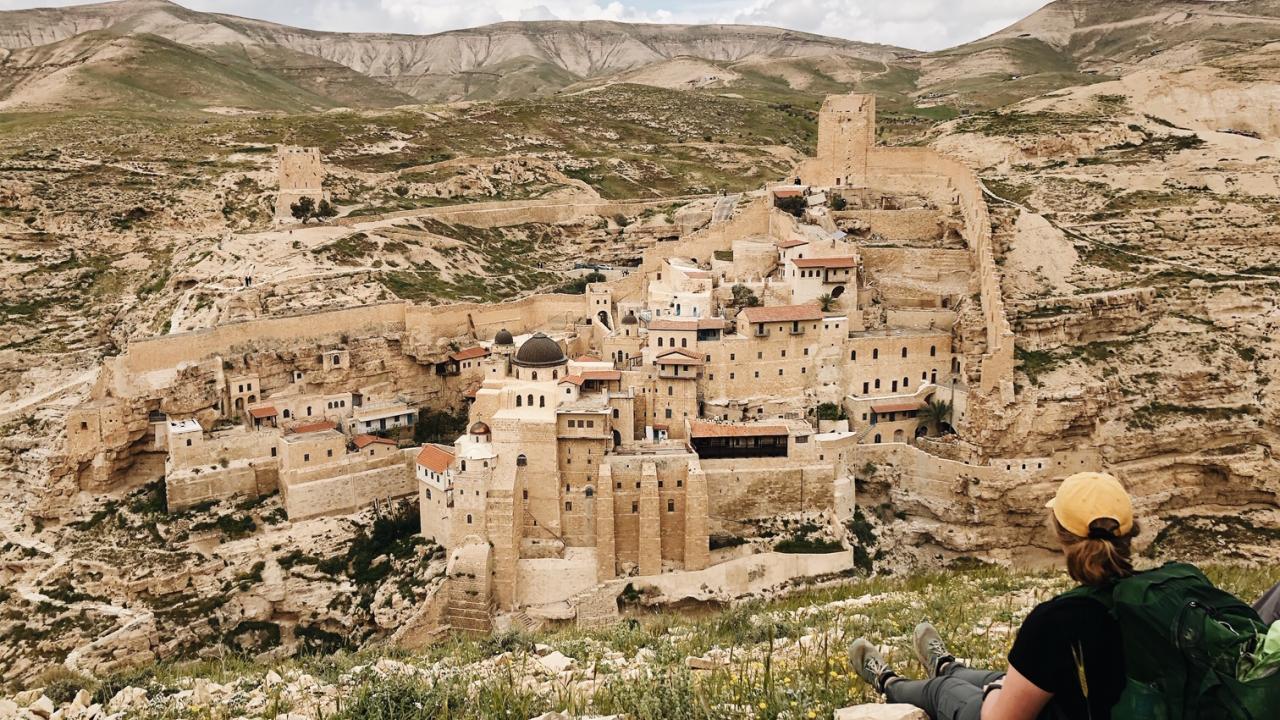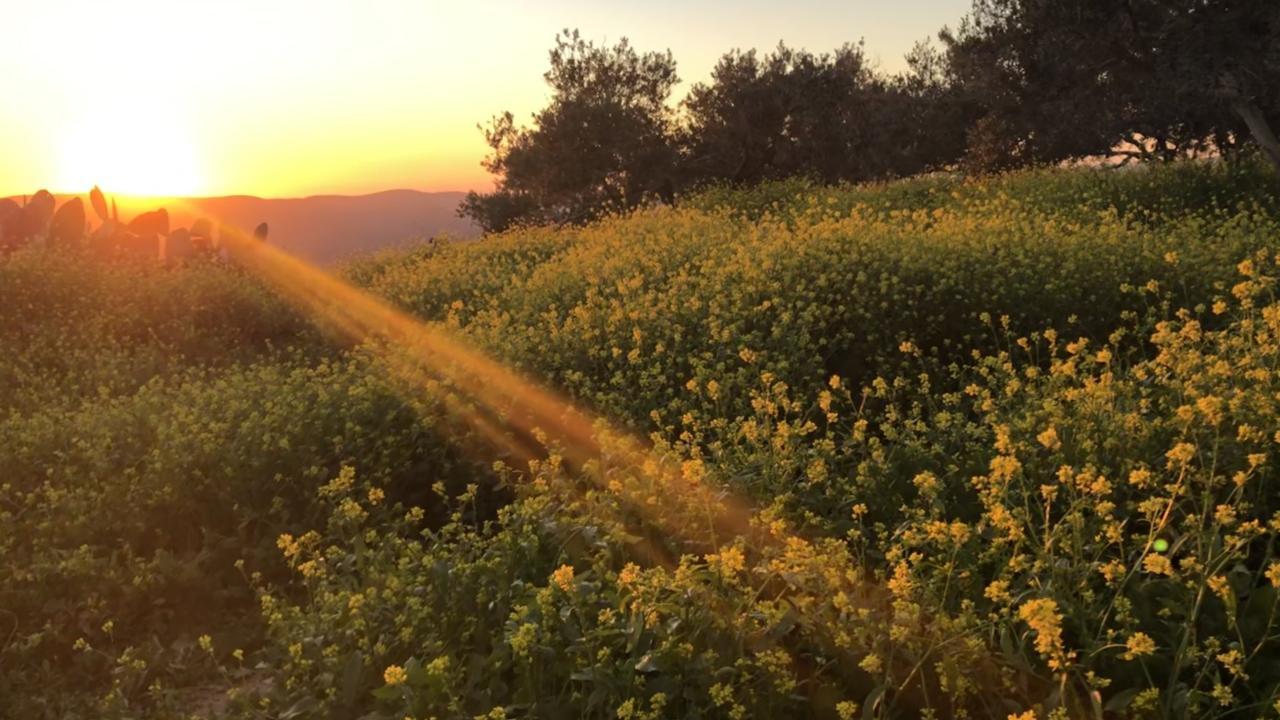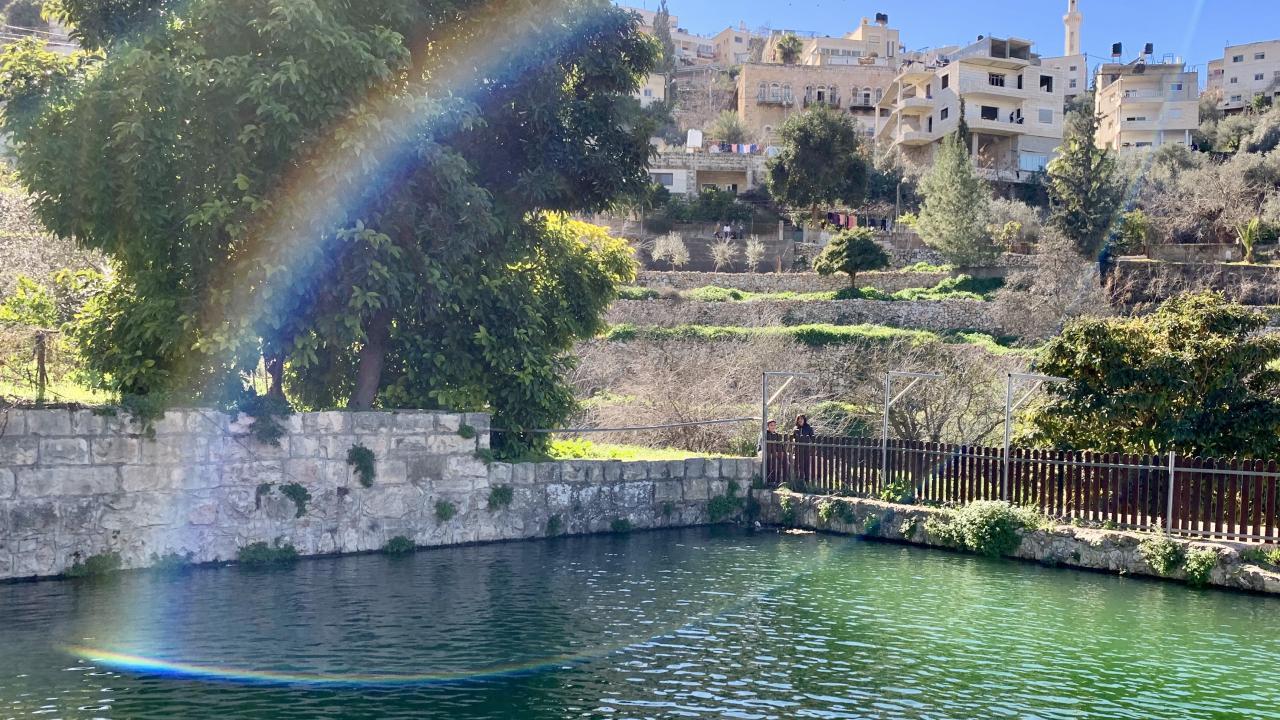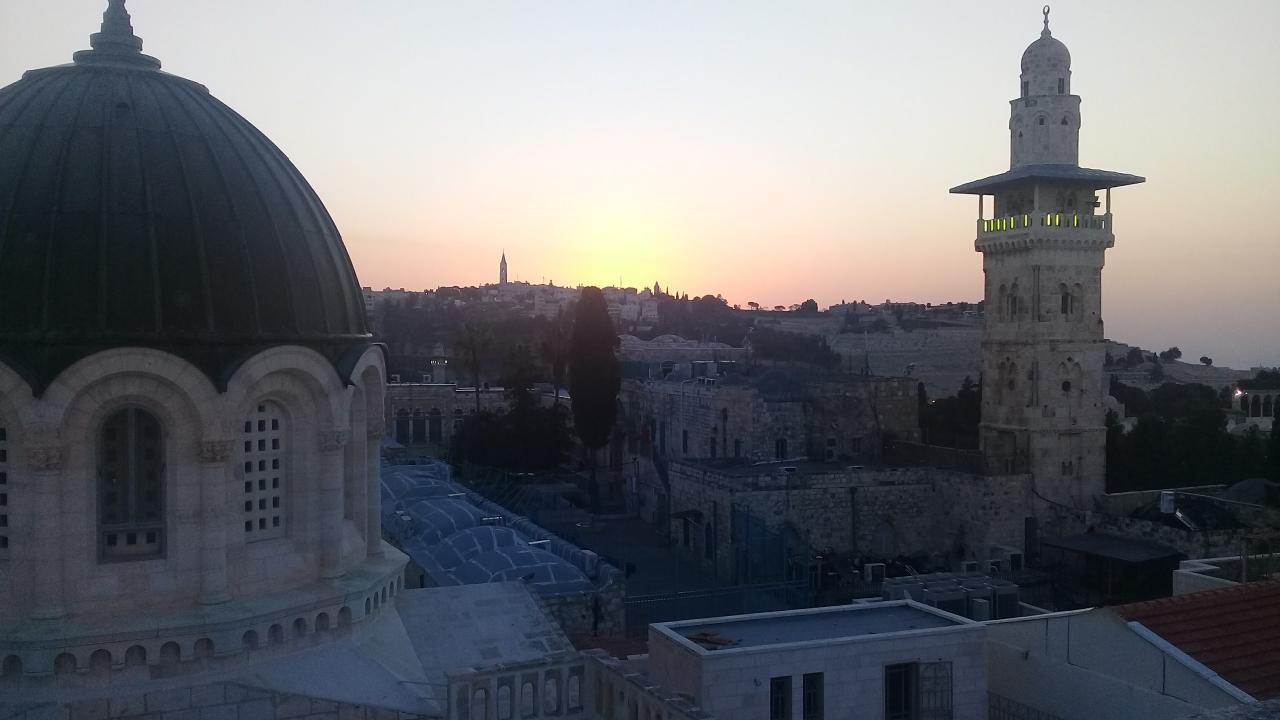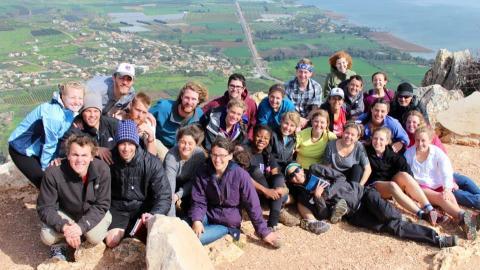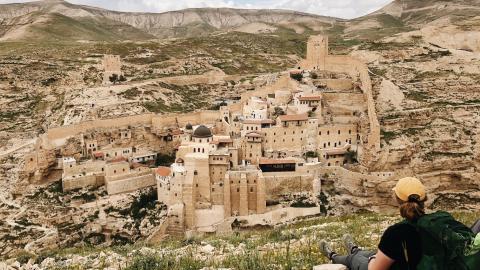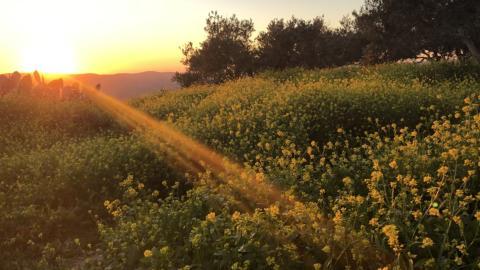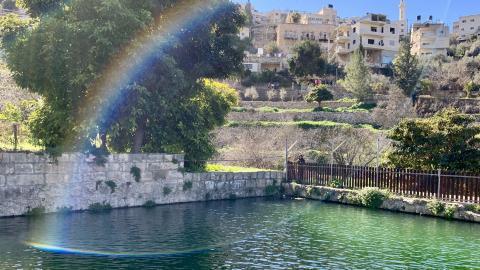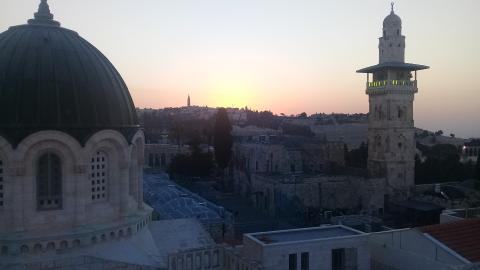Selected Spring Semesters Westmont in the Middle East
Jesus wandered here. You should too.
Make the Middle East home for the semester. Wander the labyrinth of the Old City. Banter in markets where shopkeepers know your name. Prep for class in your favorite café. Learn the rhythms of the Holy City, where Jews welcome Sabbath at the Western Wall, where Muslims stream to the Al Aqsa mosque for prayers, where Christians reenact Jesus’ journey to the cross. Three peoples jostle for space in the streets of the Middle East. So will you.
You will learn to inhabit three worlds: some days you will explore the ancient world of Jesus and find new meaning in his old stories; other days you will inhabit the modern world of the Middle East where two peoples struggle for the same land, and where fear fuels conflict, and where conflict provokes fear. You will drink tea with refugees from the Middle East; you will mourn the Holocaust and celebrate Passover with Jews.
Journey throughout the Middle East, the West Bank, Jordan and Lebanon. Live with host families in Bethlehem where Jesus was born. Hike the Galilee where Jesus healed the sick and welcomed outcasts. Float on the Dead Sea, raft on the Jordan River and snorkel among ruins in Herod the Great’s Mediterranean harbor. Climb mountains to watch the sunrise, ride camels across the desert in Jordan, hear stories from Syrian refugees, and explore limestone caves in Lebanon. All while practicing colloquial Arabic.
As you travel the Holy Land, learn to understand the pain of two traumatized peoples. Listen to experts. Hike with local guides. Study the documents that shaped history, and feel the weight of big ideas. Find your voice.
Westmont in the Middle East is both disciple’s journey and student’s quest. It is challenge and reward. It is adventure and exhaustion. Don’t take the Holy Land speed tour. Stay for a while.
Jesus lingered here. Maybe you should too?
How we roll
Westmont in the Middle East believes in cultural immersion. That means we like to live simply, travel light, and stay with local families or in family-owned hotels, hostels, pilgrim houses, agricultural communities, and bedouin camps. We practice the local dialect, learn the local customs, and use public transport rather than tour buses whenever possible. If you are hoping for upscale hotels and hop-on-hop-off tours, WIJ may not be for you. But . . if you are passionate to learn, eager for adventure, and ready to leave your comfort zone, if you want to explore the roots of your faith on location if you want to follow in Jesus' footsteps but don't want to neglect people in the Land today, and if you are curious, hard-working, and flexible.
Email ocp@westmont.edu to find out more about upcoming programs.
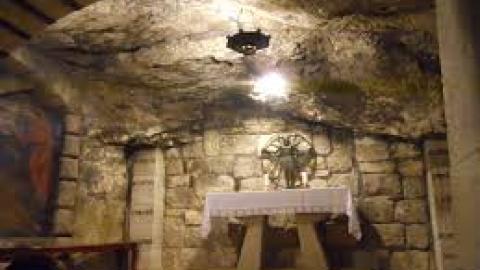
Live with host families, study Arabic, build friendships, visit refugee camps, take field trips, climb the fortress tomb of Herod the Great, volunteer, worship with local Christians, pray in the Church of the Nativity.
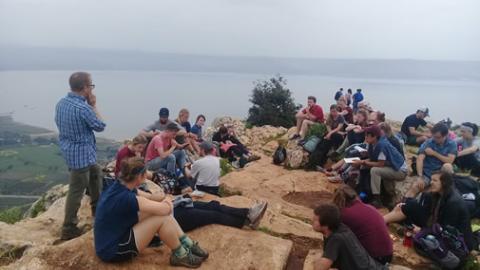
Make Jerusalem your home, both the Old Jerusalem and the new. Tour the Holocaust museum, Mount Herzl and the Knesset. Walk the Ottoman walls. Ascend to the Temple Mount. Pray at the Western Wall. Study Arabic and the Israel-Palestine conflict. Begin studying Islam and Judaism.
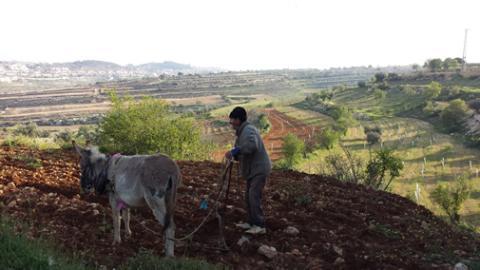
Continue studying Islam, the Conflict, and the world of Jesus. Drink from Jacob’s well. Visit the Samaritans on Mount Gerizim. Move between Palestinian towns and Jewish settlements.
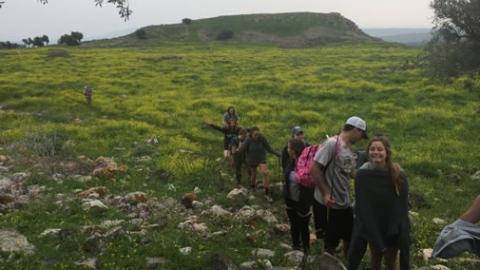
Hike the “Jesus Trail” and explore Jesus’ home turf. Sail the Sea of Galilee. Raft the Jordan River. Hike Roman ruins in the Golan Heights, in the foothills of Mount Hermon. Explore the coastal cities of medieval Akko, modern Haifa, Tel Aviv and Old City Jaffa. Swim in the Mediterranean.
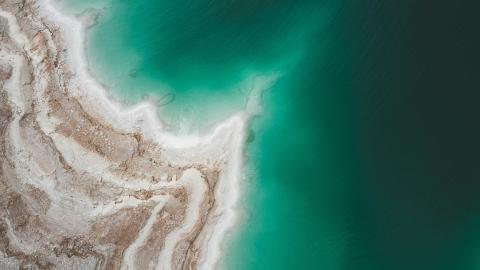
Return to Jerusalem, your home base, to continue studying Judaism and Jesus. Swim the Dead Sea, scale the fortress of Masada to watch the sun rise, explore the ruins of Qumran, and see Dead Sea Scrolls. Celebrate the Muslim holiday of Ramadan, and Jewish feasts of Purim and Passover. Ascend the Mount of Olives to celebrate Palm Sunday. Celebrate the resurrection on Easter morning in Jerusalem.
Traverse the Negev (Israel’s desert), walk the rim of the Ramon Crater. Depart Israel from Eilat, its southern tip. Enter Aqaba, Jordan. Snorkel the Red Sea. Live with bedouin in magical Wadi Rum. Hike into Petra. Fly back from Amman to Vienna.
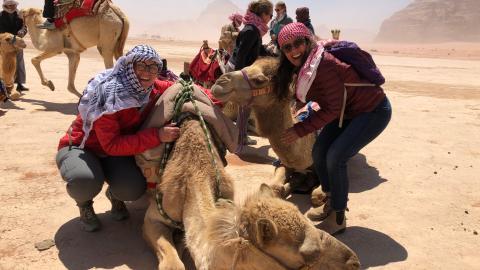
Ten days in Lebanon and Jordan, countries rich in beauty and history, and central in importance for understanding regional conflicts. Visit Beirut, Tripoli, the Bekaa Valley, a Shia mosque in Tyre, a Sunni mosque in Sidon, and Orthodox churches. In Jordan stay in old Amman, hike Roman decapois cities, and discover John the Baptist's baptism site on the Jordan river.
Cost
Westmont semester tuition, room, board, plus round trip airfare.
Students are allowed to apply their financial aid awards from the college—both need-based and merit-based awards—toward the program’s cost.
Eligibility
Faculty leaders take into consideration all of the following:
- Class standing
- GPA (minimum 2.3 GPA for eligibility) and no student life sanctions
- Application essays
- Faculty and personal recommendations
